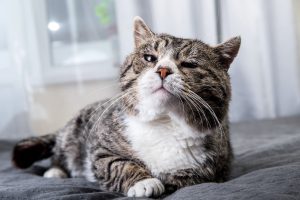
Special Care for Senior Cats
Special Care for Senior Cats: What Owners Need to Know
As cats enter their golden years, their care needs begin to change. Senior cats, typically those aged 11 and older, require more attention and specialized care to maintain their health and quality of life. As a cat owner, understanding these needs is crucial to ensure your aging feline companion remains comfortable and happy. This blog post will explore the essentials of caring for a senior cat, offering tips and insights to help you navigate this special stage of their lives.
1. Regular Veterinary Check-ups
Increased Medical Attention:
Senior cats should see the vet more frequently, at least twice a year, even if they seem healthy. Regular check-ups can help catch age-related issues like kidney disease, arthritis, or dental problems early. Here are the 2023 guidelines for senior pet care from the American Animal Hospital Association.
Customized Health Care:
Discuss with your vet about any necessary changes in your cat’s healthcare routine, including vaccinations, dental care, and screening for common geriatric illnesses.
2. Diet and Nutrition Adjustments
Special Dietary Needs:
Older cats may need a diet that’s easier to digest and lower in calories, but rich in essential nutrients and fiber. Consult your vet for the best dietary plan, especially if your cat has chronic health issues.
Hydration is Key:
Ensure your senior cat has constant access to fresh water, as they are more prone to dehydration.
3. Managing Mobility and Comfort
Ease of Access:
Make sure your cat can easily access their favorite spots. If they love high places, provide steps or ramps.
Joint Care:
Watch for signs of arthritis and discuss pain management and joint supplements with your vet.
Comfortable Bedding:
Provide soft, easily accessible bedding to help relieve pressure on aging joints.
4. Mental Health and Stimulation
Keeping Them Engaged:
Continue to play with your senior cat and provide stimulating toys to keep their mind sharp.
Gentle Interaction:
Regular, gentle interaction can help maintain their mental health and alertness.
5. Grooming and Hygien
Assistance with Grooming:
Aging cats may struggle with self-grooming, so they may need your help to keep their coat healthy and free of mats.
Litter Box Considerations:
Older cats may need a litter box with lower sides for easy access. If you find your senior cat has started eliminating outside of their litter box, you may need to provide them with a low sided litter box. You may also need to add more litter boxes around your home for easy access when your senior kitty feels the urge.
6. Monitoring Behavioral Changes
Be Observant:
Pay attention to any changes in behavior, appetite, weight, or litter box habits, as they can be indicators of health issues.
7. Creating a Stress-free Environment
Routine and Familiarity:
Maintain a routine and a calm environment, as senior cats may become more sensitive to changes or loud noises.
Conclusion
Caring for a senior cat is a rewarding experience that can deepen the bond you share. By understanding and adapting to their changing needs, you can help ensure your senior cat enjoys their golden years comfortably and lovingly. Remember, patience, attentiveness, and regular veterinary care are key in providing the best care for your aging feline friend.
